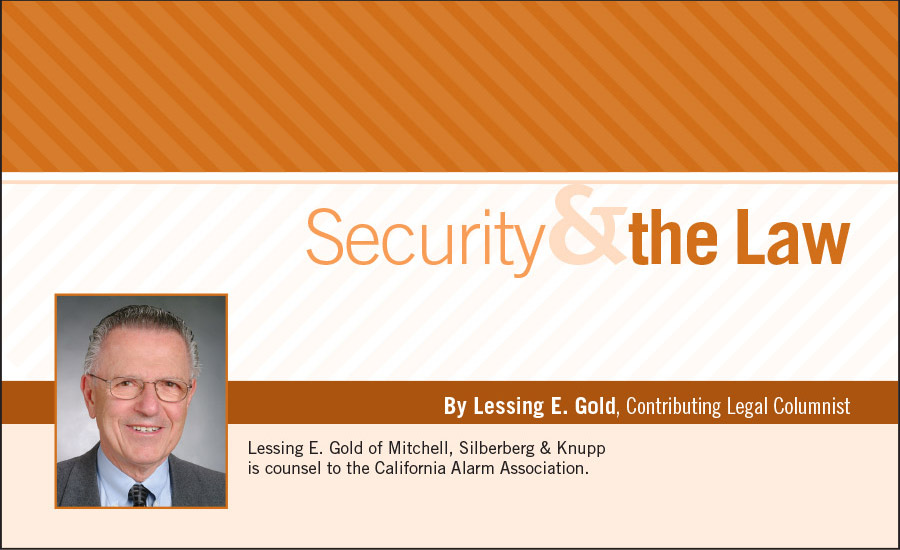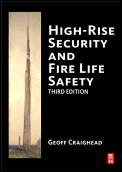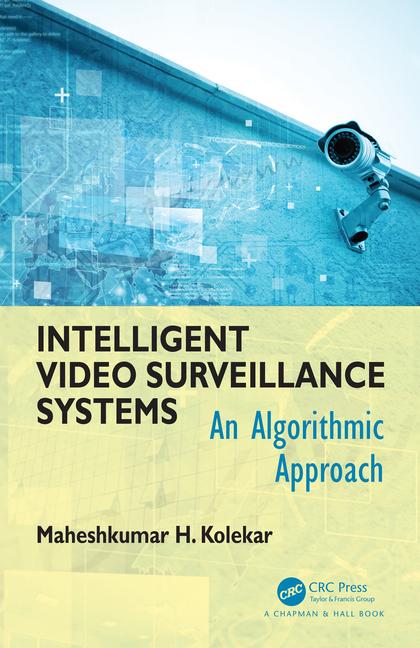In a case recently decided by the Court of Appeals in Colorado, the plaintiff and a casualty insurer appealed the judgment entered after a jury trial to determine damages under breach of contract claims against the defendant alarm company.
The plaintiff distributed merchandise to convenience stores and contracted with the alarm company to install and monitor their security system at a warehouse used to store the inventory.
A break-in occurred at the plaintiff’s warehouse and the alarm company employees failed to detect or respond to the break-in while the intruders looted the building for several hours. The defendant alarm company apparently ignored several alarms activated by the burglars. One of the burglars started a fire in the warehouse, which destroyed the building.
Plaintiff filed the lawsuit against the defendant alarm company. The lower court dismissed plaintiff’s claims and granted the alarm company’s motion for summary judgment on the contract claims based on the limitation of liability clause in the plaintiff’s contract with the alarm company.
On appeal, the court affirmed the dismissal of the tort claims but reversed the grant of summary judgment on the contract claims holding that the plaintiff’s claims for willful and wanton breach of contract were not subject to the contractual limitation of liability. The case was then remanded for a trial on the breach of contract claims. On remand, the jury found that the alarm company had willfully and wantonly breached its contract with the plaintiff and breached the contractual duty of good faith and fair dealing and awarded damages to the plaintiff and to its insurers.
Again on appeal, the court affirmed the jury’s verdict as to the alarm company’s liability, but reversed the damages award. The decision held that the court erred by excluding the testimony of the alarm company’s expert witnesses regarding the foreseeability of the extent of the plaintiff’s losses. The case was remanded for a new trial on damages at which time the jury awarded the plaintiff a significantly lesser amount of money.
The plaintiff appealed to the Court of Appeals of Colorado. The court pointed out that one of the alarm company’s employees testified that the purpose of the defendant’s burglar alarm system was to detect break-ins, not fires and that the nature of what was stored in the warehouse was not relevant to services the alarm company was to provide under the burglar alarm contract. Further, experts testified that plaintiff stored more than 30 times the amount of flammable and combustible materials allowed by fire and building codes, and that the plaintiff’s violation of these codes was a significant contributing factor to the fire loss.
The court indicated that the breach in this case is the failure to detect the burglars and inquired as to what would be the natural and probable consequences of the failure to detect burglars at a warehouse? The question was whether an arson fire was foreseeable.
The court pointed out that there is no requirement that . . . the particular way that the loss came about is gratuitous. To recover damages for inventory, the plaintiff was not required to plead that the fire itself was foreseeable. Therefore, evidence of the foreseeability of the fire was not relevant to whether the loss of inventory was foreseeable. In sum, the court pointed out that the plaintiff was required to prove that both the kind and the general magnitude of its claimed lawsuit were foreseeable as the probable result of the breach. It was not required to prove that any particular cause of the lawsuit was a probable result of the breach.
The issue then became, how much of the claimed damages were foreseeable from the alarm company’s breach of contract? The court indicated that the damages must have been foreseeable at the time of contracting. Though evidence of the alarm company’s prior conduct, was relevant to whether the alarm company breached the contract and whether the breach was willful and wanton, it was not relevant to the foreseeability of the plaintiff’s damages at the time of contracting. Therefore, the judgement against the alarm company was affirmed and their cross-appeal was dismissed.
Readers Ask
Q: I understand the law in California has recently changed and in order to have an automatic renewal provision in my contract it must be annexed to a separate agreement advising the subscriber that the agreement contains the automatic renewal provision. Our company has a number of existing residential subscribers with renewal periods of from three to five years. What, if anything, must I do to comply with the current California law?
A: Under the current California law, the new provision provides that “for residential agreements entered into on or after January 1, 2017, that include an automatic renewal provision that renews agreements for more than one month, a clear and distinct disclosure shall be included separate from the terms and conditions of the agreement advising the consumer that the agreement he or she is entering into contains an automatic renewal provision.” The disclosure must contain additional provisions that must be included which I have not set out in this article.
From your standpoint, the key words are “for residential agreements entered into on or after January 1, 2017. . .” Therefore, if the agreements were entered into prior to January 1, 2017, they should remain in effect. I caution you, however, that some jurisdictions frown on automatic renewals for a length of time exceeding one year. That being the case, be very selective when attempting to enforce the automatic renewal provision, particularly when the age or infirmity of your subscriber is in question.










